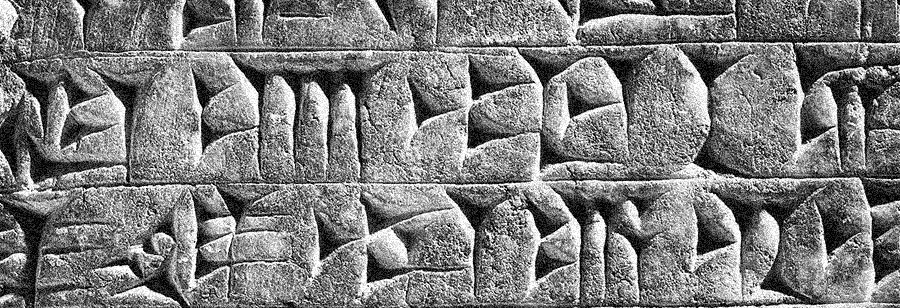After a few days of no blogging I’m overrun with things I want to write about, and not sure where I should start. But today it’s going to be The Epic of Gilgamesh
Other topics which interest me at the moment, and this is in no particular order, include;
- will anyone remember my work when I’m gone.
- why writers are thought of as anti-social.
- fact checking and who you can trust.
- Why my head is like a box of bees.
So, like the Von Trapp family in the Sound of Music,
Let’s start at the very beginning, A very good place to start…
Writing stories is nothing new. Even though we spend hours each evening glued to our screens, more writing is published today than ever before. Tablets and E-readers have made it easy to consume the written word. Laptops, blogs, and publishing on the internet allows even the most mediocre author to find an audience. But for millennia before the invention of audio recording, the radio transmitter, or the internet, written stories were our most simple form of entertainment.
Once committed to paper, and assuming it is correctly preserved, a written story will last longer than its writer. The oldest surviving written story is an epic poem, The Epic of Gilgamesh, which dates back to more than two thousand years before Christ.
It’s your basic story, The Gods are board so the Gods make a man. Enkigu, the man they made, is tamed when he sleeps with a prostitute. The upshot of Enkigu’s night with the lady, who’s virtues are negotiable, is not a case of the pox. He got lucky, but he has a vision which tells him to challenge the local king to a test of strength – Why, well that’s never explained. The king, a chap called Gilgamesh, who gives his name to the story, can see Ekigu’s a mountain of a man. He still takes him up on his challenge, and guess what, the part-man and part-god character wins – Hands up anyone who didn’t see that coming?
They become friends and they go on a journey together. Their quest is to cut down a sacred tree. However, another God, one who wasn’t in on the whole “let’s make a man thing,” sends a bull to kill them because it’s her tree they’re off to cut down. The bull fails and is converted into a pot of beef bourguignon and about a tonne of prime cuts. The goddess, Ishtar is, quite rightly, a bit pissed about losing her prize bull – well you would be, wouldn’t you – and she talks the other gods into sentencing Enkidu to death. Now, we know that when you’re sentence to death by the gods there’s really only one way for the story to go, and spoiler alert, he dies – horribly.
Gilgamesh is tormented by the death of his friend. Who’s going to help him eat the rest of that bull to start with? They had no refrigeration, and it’s probably beginning to hum a bit. So he decides to take another long journey, it’s what they did back then, and this time he’s in search of the meaning of life, (the answer by the way is 42, if you don’t know why, then look it up in the hitchhiker’s guide to the galaxy, by Douglas Adams).
As the King reaches the end of his life, he comes to the conclusion that “the life which you look for, you will never find. For when the gods created man, they let death be his share, and control of his life they withheld in their hands.”
And that’s the epic of Gilgamesh in a nutshell. Mind you it go’s on a bit. There have been twelve clay tablets found so far, and we have no reason to think there isn’t more buried somewhere under the sand of Mesopotamia. If you’d like to read more, you can click on this link and have a look.
So, if the oldest story can last four thousand years, then it’s fair to say that something I write today could still be around after I’m gone. I hope so, but I don’t expect to make it onto wickipedia, and it’s unlikely anything I’ve written will be searched for in the year 6019. The only person who might read my work will be one of my grandchildren on a wet Sunday afternoon. I like to think of them looking for clues in the text, something that will tell them where I stashed the family silver – but I’ve got bad news for them, there’s none left. It all went on fast women and slow horses (which is also the name of a Dr Feelgood album, released in 1982).
I was amazed and swelled up with pride when my daughter told me she’d found one of my mother’s books online. Mum, Margret Elizabeth Hadley, wrote two novels, A leaf in the wind, and the Passion Flower. They are both out of print now, but writing gave her great joy and the feeling of accomplishment when they were published stayed with her for weeks. Mum suffered from cancer for several years, she was often in pain yet seldom showed it. I think writing was one of the things that kept her going. That and the sparkling wit of her youngest son.
It was from her that I got my love of reading and You can see what I’ve been reading by clicking on this link. It’s not a comprehensive list of everything I’ve read recently but you might find few hours of escapism here. Sadly it doesn’t include The Epic of Gilgamesh.
